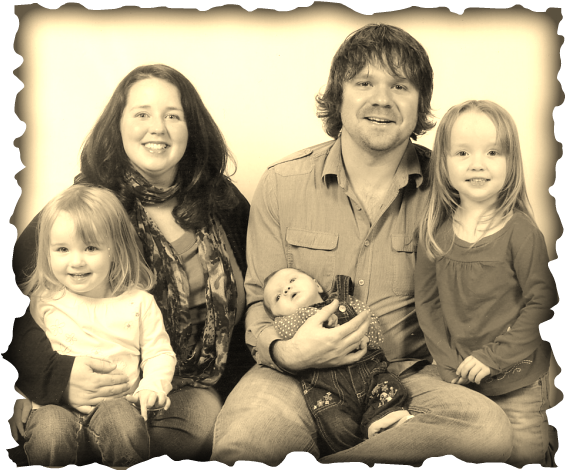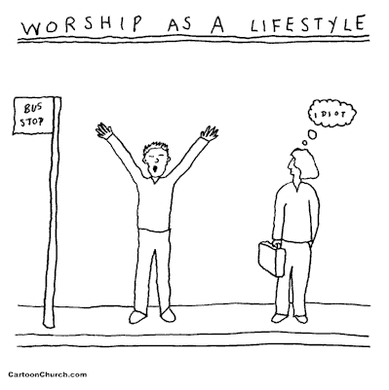The MovieI went to see "the King's Speech" a little while ago with my wife and my parents, who were over visiting us (I'm from Wales and live in Canada). I love the movie. It's exceedingly well done: wonderful cinematography, a great story and an insight into a slice of history that most of us would have, otherswise, had very little knowledge of. Plus it stars three actors for whom I have a lot of respect: Colin Firth, Helena Bonham Carter and Geoffrey Rush.
There was a sense almost of reverence in the movie theatre as the story played out. As a friend of mine commented, it's rare that people will applause at the end of the film. But at the end of "the King's Speech", they did. Without a doubt, it's a rousing, life-affirming account that humanizes royalty and reminds us that societal strata form no barrier to the most inexplicable of afflictions; in this case stuttering.
I am a stuttererBut "The King's Speech" was particularly poignant to me. You see, I am a stutterer - at times I'm recovering, at other times regressing. I prefer saying stutterer to stammerer because of the onomatopoeic irony: the noun sounds like the sound, it's a term fraught with consonant-rich pitfalls for those inflicted with the impediment.. You can tell a lisper by how they say "lithp". You can tell a stutterer by how they stutter over the word st-st-stutter. I know Bertie uses the word
stammer in the movie, and I use it too, sometimes. But for poetic injustice's sake, I will use
stutter here. As an aside, my singing voice has always been exempt from this speech impediment. I'm sure there's a physiological or psychological reason. If only life was an opera, and I could sing my way through life...
Stuttering as a childSome of my most formative childhood memories are spotlighted in my consciousness by the considerable stress stemming from my stutter.
Like the time I was playing the Psalmist David in my Church in Wales Primary School play. I had an angelic singing voice, but a devilish st-st-stutter After all these years, the relief is still palpable upon remembering my then-best-friend John Harris, rescuing me from an impassible vocal block by an ingenious save. Upon seeing my struggle, he proceeded to turn
my question into
his statement: "I bet you're wondering..." he said, continuing to say my line. I nearly collapsed with gratitude.
I remember when I was in comprehensive school we were all required to read out loud and I cannot express the dread that would sit, knotted and grotesque, in the pit of my stomach as I waited for the death knell signifying my turn to read. Though my teacher required us all to read, I was mercifully usually given small parts. But those small parts tended to grow out of all proportion in my mind, becoming
the enemy. I used to flick forward in my book, looking ahead to my (usually singular-sentence) part and count down the pages, inwardly pleading for the bell (signifying the end of class, and my reprieve from a fate worse than death) to ring.
In this class, there was a boy who delighted in tormenting me because of my stutter and the facial contortions that ensued. His impersonations weren't that great: nothing like the real thing. But still they were like a knife to my heart. One time he mocked me and, driven by irrepressible rage and impotent outrage, I ran round to his side of the table and punched him. The manliness of my just onslaught was somewhat offset by the fact that I was crying like a baby. But beggars can't be choosers. The result was that
I hit him, and
he got in trouble. For that instant, life was sweet. Plus the fact that girls used to think my stutter was cute or adorable. Which would simultaneously infuriate and please me.
Oh, and I hated my name. I wished I was called
Oliver or
Sam; a name that lacked the curse of the hard first syllable. I would dream of walking up to people and saying "Hi, I'm Sam". I didn't dream of being Prime Minister or a Mighty Morphin' Power Ranger. I dreamed of being called Sam. I dreamed of speaking without resorting to facial contortions, tricks or run-ins to say what I wanted to say.
God's sense of humour?
All of this makes the fact that I am now a preaching Pastor even more ironic. That I can stand in front of people and speak, read, enunciate, articulate and express myself is a gift I revel in and do not take lightly. That being said, stutterers do generally have a good vocabulary - they are a veritable walking thesaurus of all the alternate, and easier, ways of saying what they really want to say! You see, I've always been the witty one, the funny one, the one with insight and the clever comeback. The only problem was, no one knew it except me. As a stutterer, I describe myself as an extrovert trapped inside an introvert's body. I'm not trying to compare the two in kind or severity when I say that stuttering to me has been a mental form of quadriplegia. But instead of being trapped inside my own body, I've been imprisoned behind my own tongue. Psalm 51:15 to me is not just a nice metaphor; it's has been an urgent literal scream of desperation: "Loosen my lips, and my mouth will declare your praise".
Crashing and b-b-burningWhen I stand before the congregation whom I serve as Assistant Pastor, I treasure this gift of (mostly) fluency. I know that, by God's grace and my local church's love, patience and acceptance I've become a speaker, when I have no right to be. That's not to say it's always smooth sailing. This past Sunday for example was my worst, eloquence-wise, for a long time. I was tired (strike one), I was nervous (strike two) and I took on too much responsibility in the service (strike three and I was out). After leading worship for about 45 minutes I began to read the text from which I was preaching. I stumbled over one word and, like an over-extended runner, I began to trip, flail, overbalance; eventually falling gracelessly to the proverbial verbal ground. Thereafter it went from bad to worse. I must have stuttered every sentence. I managed to claw my way on all fours towards the finish line and, when the final word of communion was u-u-u-uttered and the congregation was dismissed, I sat, exhausted in the sanctuary, too emotionally frail to meet my friends' concerned smiles or well-meaning encouragements or to perform the role of Pastor. I hung around for a bit, and then I went home and inwardly collapsed. I'm thankful that my wonderful wife knew me enough to pack me off by myself in the car to Starbucks to read my book in quiet. Just what the doctor ordered.
After the service, I journaled the following:
"I feel frustrated. I feel broken. I could not face people after the service; their pity or confusion or well-meaning encouragement. Lord, I feel like I let you down, but I can't help feeling like You let me down...My greatest desire is to allow Your Spirit to convince others through my words. It's a fire burning in my bones; I cannot keep it in. See fit to free me for honest expression. I know there is a lot of self in these requests; but I had hoped that our interest in my fluency might be mutually beneficial"The next morning, I spent a couple of hours on my own in the sanctuary, re-preaching the sermon to empty pews, so that I might be able to put into the hands of the people who graciously made it through the sermon on Sunday the 'intended result'. Did I preach the whole sermon again for God's glory or the sake of my reputation. I don't know. Perhaps both.
Deciphering God's willIt's at times like this when I question the will of God, too beat-up to pray for a miraculous healing (which I know God can do). It's at times like this when I wonder whether the best I can expect is to stumble through life, unfulfilled in what I think is my calling as a preacher. Perhaps my best work will be done on paper. Perhaps I should leave the ministry and, instead, work with my hands. I'm married with three kids, so becoming a monk vowed to silence is no longer an option. Who knows, perhaps God will raise me up, loosen my lips and I'll become the greatest expositor of scripture this world has even known. I doubt it, but it's nice to dream, isn't it? But that's the problem - stuttering makes one a realist. Life never is more real than when you've stalled your way through an agonizing preaching of God's word, followed by a backfiring observance of Holy Communion. If it wasn't so sad, it would almost be funny.
I still do get my "King's Speech" moments: when the stars seem to align and the words seem to flow and heaven seems to rejoice; people's minds get changed and the Church becomes a little more inspired towards holiness. However, I feel like right now I'm embroiled in the
cursing scene of the movie instead: frustrated at my inability to articulate what I think would glorify God.
Making sense of it allI vascillate between two poles - hope at what God can do in and through me, and the familiarity of self-loathing. I am grateful that at this moment in life, my life is lived largely at the former pole, with occasional days spent obsessing over the latter pole. I remember the despair from my childhood and rejoice that God has brought me thus far.
I know that my stutter has been formative: making me who I am. I know it's driven me to read and to write, because I need some outlet for what's inside. I know it's given me empathy towards people who are faced with struggles. I know it's helped tuned my inner-radar to those who exist on the periphery. I know that it's provided me with a sense of gratitude for what to many is a given: fluency. And when I do preach well - I know it's not me!
This may be my equivalent of Paul's thorn (1 Cor 12:7). It may be part of God's inconceivably great plan. God's ways are definitely higher than my ways, as are his thoughts (Isaiah 55:9). Whatever it is, I know that I am (mostly) thankful for it. And even now, still reeling after Sunday's sermon, as I'm eyeball to eyeball with my stuttering self; even as those childhood feelings of inadequacy and hopelessness are somewhat resurfacing; even as I wish, hope against hope, that this stuttering affliction could cease, and I could share with you from the side of victory; even with all of this, I have a sneaking suspicion that this bane of my life might actually be my greatest blessing. The means by which I am constantly driven back to the throne of grace as I flee from my own shortfalls. It's my quickest reminder that I'm not
'all that', when I'm tempted to think I am.
I was moved to write in my journal this week, after a study group at my house in which we discussed the persecution of the Christians (both historical and current), the following:
"Lord, I ask whether it is enough for me to know that you are Yahweh. Would it be enough for me to know that you are glorified in my stutter, even if You never intended to take it away. O God, I long to be free from it; to know the freedom of an untroubled tongue. Yet, my soul finds rest in God only. My hope is in You"





